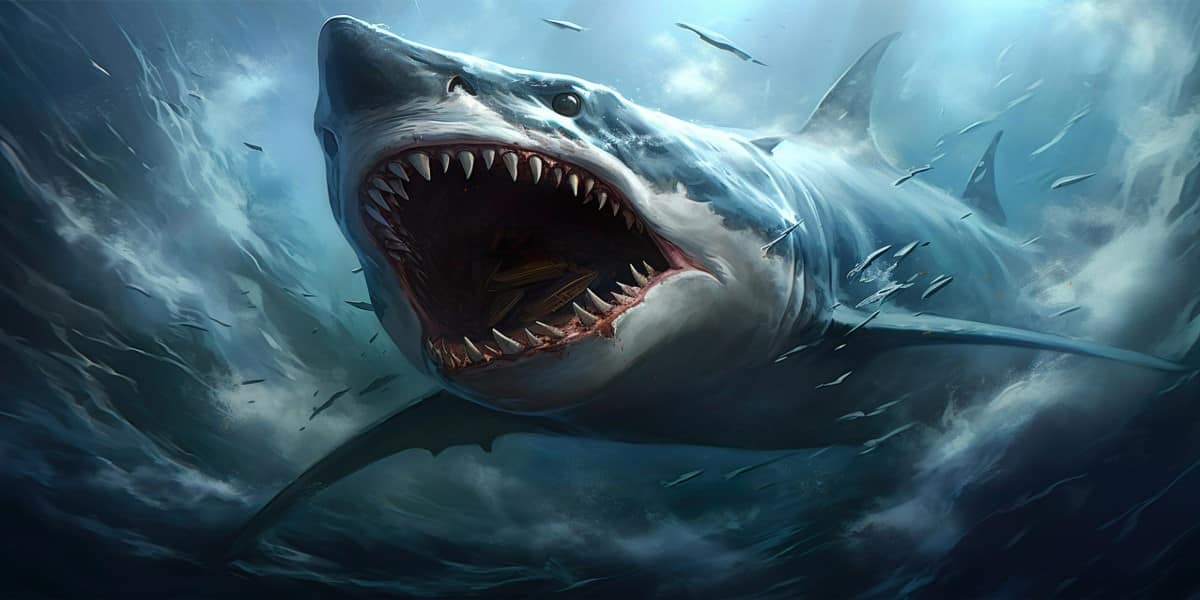Megalodon
Doodlebrary
- Megalodon (Otodus megalodon) was a colossal prehistoric shark.
- Lived approximately 23 to 3.6 million years ago during the Cenozoic Era.
- Name means “big tooth” in Greek, highlighting its massive teeth.
- Size and Physical Features
- Estimated length: up to 60 feet (18 meters) or more.
- More than three times the size of today’s largest great white sharks.
- Jaw size: up to 11 feet wide; large enough to swallow two adult humans.
- Teeth: up to 7 inches long, serrated for slicing through prey.
- Often depicted as a larger version of the great white shark, but exact appearance is debated.
- Habitat and Range
- Inhabited various marine environments, from coastal waters to deep oceans.
- Fossils found globally: North America, Europe, Africa, South America, and Antarctica.
- Thrived in warm waters when sea levels were higher during the Pliocene.
- Diet and Hunting Techniques
- Apex predator; fed on large marine mammals (whales, seals), sharks, and fish.
- Fossil evidence shows Megalodon teeth embedded in ancient whale bones.
- Estimated bite force: over 40,000 pounds of force, significantly stronger than modern sharks and even T. rex.
- Likely ambushed prey, using powerful jaws to crush bones and incapacitate large animals.
- Extinction
- Megalodon went extinct around 3.6 million years ago.
- Likely causes include:
- Climate change: cooler temperatures and dropping sea levels reduced warm, shallow habitats.
- Loss of prey: decline in large marine animals reduced food sources.
- Competition: smaller sharks and early ancestors of killer whales may have outcompeted Megalodon for food.
- Cultural Impact and Legacy
- Featured in numerous films, books, and documentaries as a terrifying predator.
- Fossilized Megalodon teeth are valuable to collectors and scientists.
- Teeth provide insights into the creature’s behavior, diet, and the ecosystems of ancient oceans.
- Conclusion
- Megalodon, the largest known shark, symbolizes prehistoric power and mystery.
- While extinct, its legacy lives on through fossils and the stories that continue to inspire fascination with this ancient ocean giant.
